Categories > Guides and Tips
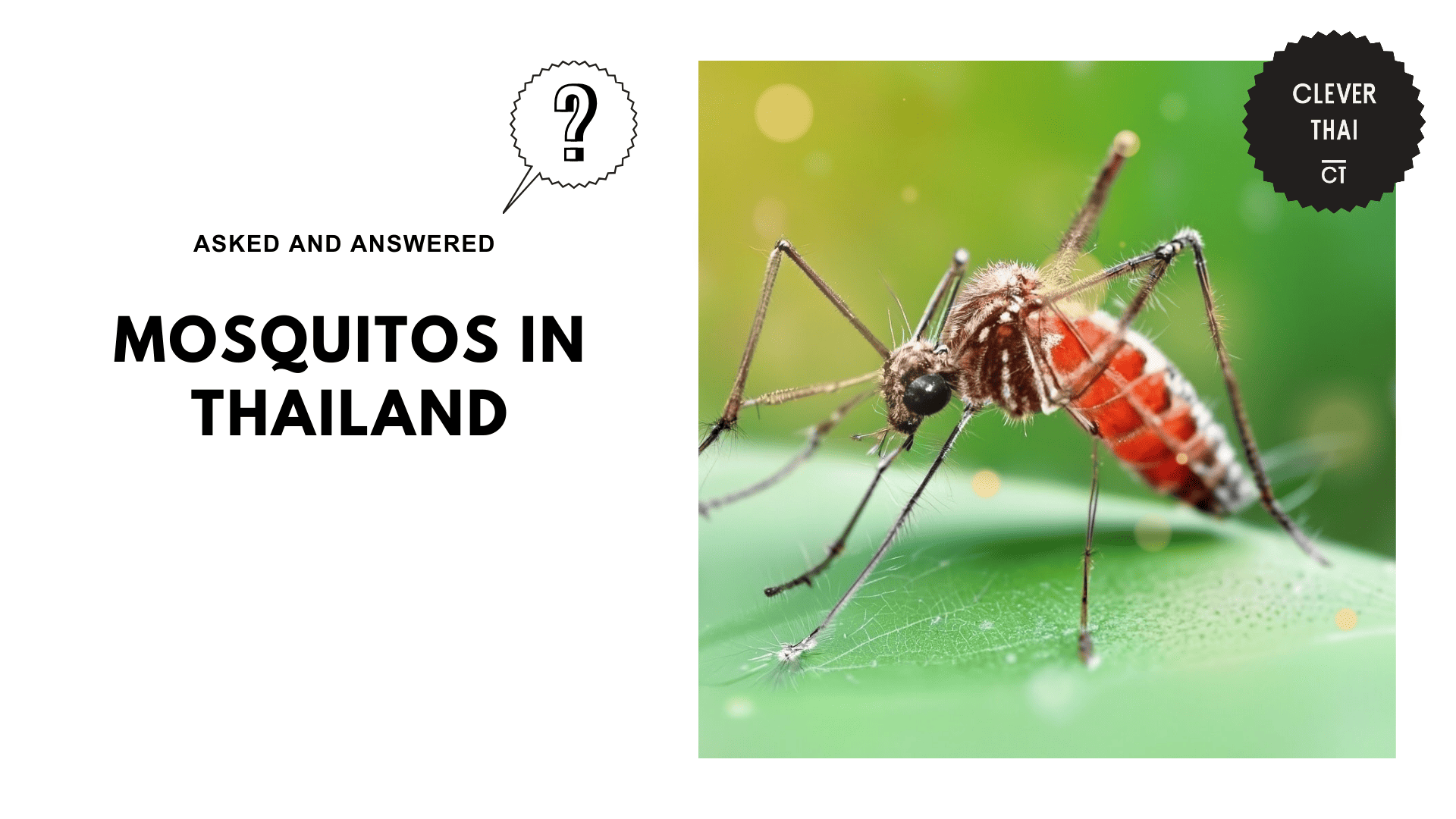
Mosquitoes in Thailand: What You Need to Know
Thailand’s tropical climate may be great for those who want to enjoy the beautiful beaches and the urban lifestyle of the country. Unfortunately, this also means high temperatures and high humidity–-the best conditions mosquitoes thrive in.
While there is admittedly an increase in the population of these pesky insects, you shouldn’t really think of them as major threats and in fact, their overall impact can easily be mitigated.
So, if you want to know more, read on! Our guide to dealing with mosquitoes can help you equip yourself against these annoying pests while you’re in Thailand!
When are mosquitoes most numerous in Thailand?
Mosquitoes in Thailand are most numerous from June until October or during and after the rainy season, as the females can easily lay their eggs in the remaining water puddles.
So while there are certain periods when they are obviously much more active and numerous, keep in mind that mosquitoes are a constant reality in Thailand. They are literally everywhere all year long!
When are mosquitoes most active?

Mosquitoes are most active during sunset and sunrise or from 5:30 AM to 7:00 AM and between 5:00 PM to 6:30 PM.
However, expect that you’ll still be bitten even during daytime so it’s best to protect yourself all day long.
Keep in mind that mosquitoes prefer heavily wooded and humid areas compared to draughty and windy ones. As such, expect to see more of them in the northern part of Thailand compared to the southern part of the country.
What can you do when you get bitten by a mosquito?
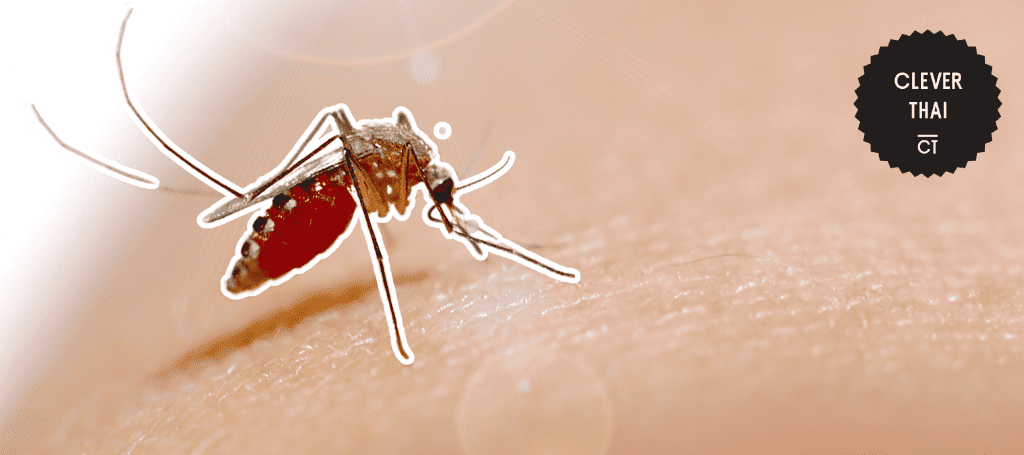
When bitten by a mosquito, immediately treat the bite with an anti-itch ointment, like Systral, Nestosyl, or Tiger Balm. And if you’re in a pinch, try using a banana peel or toothpaste on the bites to dampen the itch.
Next, do not scratch the bites as doing so will lead to more itchiness. Aside from that, scratching the area can lead to small wounds which may cause scarring or a skin infection.
What are the health impacts of mosquitoes in Thailand?
Mosquitoes in Thailand pose a significant health impact on locals and tourists as they carry various diseases such as dengue, Japanese encephalitis, malaria, Zika, and yellow fever.
Below, we’ll discuss the various diseases caused by mosquitoes so you can better understand and prepare for them while you’re in Thailand:
Dengue
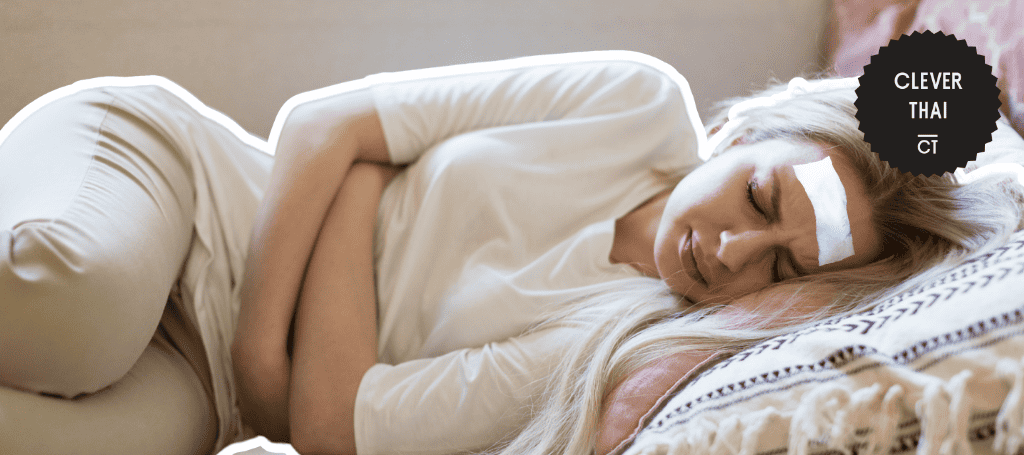
| Disease | Symptoms | Area | Period | Time |
| Dengue | Flu-like symptoms such as severe headaches, pain in the bones, joints, and muscles, and high bouts of fever | Urban and northeast areas of the country | June to September | Daytime |
Dengue fever is one of the most common diseases you can get from mosquito bites. It has flu-like symptoms and is spread by mosquitoes infected by the virus.
The virus is usually transmitted by these insects during the day and can only be transmitted from mosquitoes to human beings and never through person-to-person contact.
mosquitoes infected by the virus can be found all over Thailand but there are more of them in the urban and northeast areas of the country. Most of these insects are active from dawn to dusk and are especially prone to bite during the day.
The months from June to September or the country’s rainy season will be their most active time of the year.
Dengue Symptoms
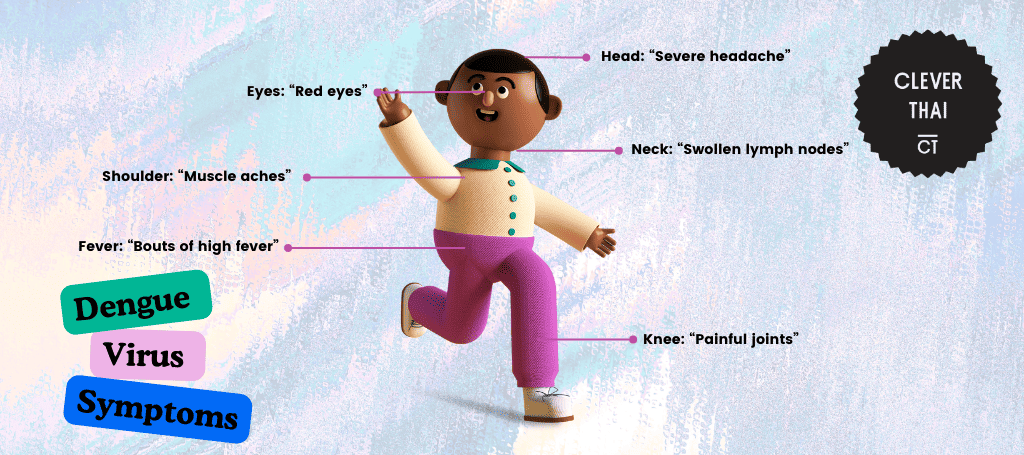
Thailand had a total of 142,925 cases reported in 2015. Unfortunately, out of this number, 141 led to the death of the patient.
Dengue patients won’t show symptoms at times but if they do, it’ll probably start around 4 to 7 days after their exposure to the virus. They will mostly experience symptoms similar to those of the flu.
Watch out for symptoms such as severe headaches, swollen lymph nodes, pain in the bones, joints, and muscles, and bouts of high fever. There are cases when dengue fever can be lethal especially if there are no medical professionals to mitigate its effects.
Generally speaking, though, dengue isn’t considered a dangerous or lethal illness. It can lead to days or weeks of bedrest though, so expect to lose out on some of your scheduled tours if you get hit by this virus while travelling around the country.
What to Do about Dengue Fever

There is an available vaccine against dengue fever but it’s only for those who had prior infection. Treatment routes will only require you to take some Oral Rehydration Salt (ORS) to avoid getting dehydrated and some paracetamol to combat the pain.
Avoid taking Ibuprofen, Aspirin, or Naproxen if you’re a confirmed dengue case as this may increase your risk of internal bleeding.
If you or a family member experience belly or stomach pain, bleeding from the nose or gums, or vomiting thrice within the last 24 hours on top of the other flu-like symptoms, it’s time to head to the hospital emergency room to check for dengue.
The doctor will run tests and will order a dengue test (RT-PCR) and a Complete Blood Count (CBC) to confirm if you are infected with the virus.
Japanese Encephalitis
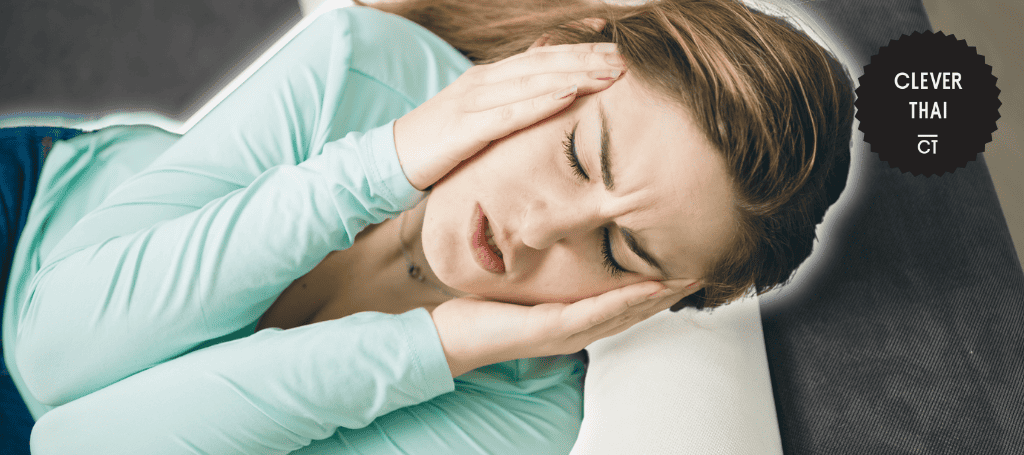
| Disease | Symptoms | Area | Period | Time |
| Japanese Encephalitis | Flu-like symptoms such as headaches, muscle pains, and fever. Extreme cases may experience epileptic fits, drowsiness, or coma. | Southern Thailand, Phitsanulok, Sukhothai, and the Chiang Mai Valley | May to October | Dusk |
Japanese encephalitis is a form of rare viral infection that can result in the brain’s inflammation. Among those who are infected by the virus, only a few will progress to actual inflammation of the brain (encephalitis).
This disease can only be spread by mosquitoes once they bite the virus and other carriers such as pigs. The virus cannot be transmitted through person-to-person contact.
Your risk of getting infected with this virus is extremely low. In fact, statistics indicate that the ratio would probably around 1 is to 500,000 and even 1 is to 1,000,000.
However, you should still be extremely careful about this illness as it is quite dangerous with a 20% to 30% mortality rate. It also has long-lasting effects as around half of survivors will continue experiencing cognitive, psychiatric, and neurological damage.
Japanese Encephalitis Symptoms
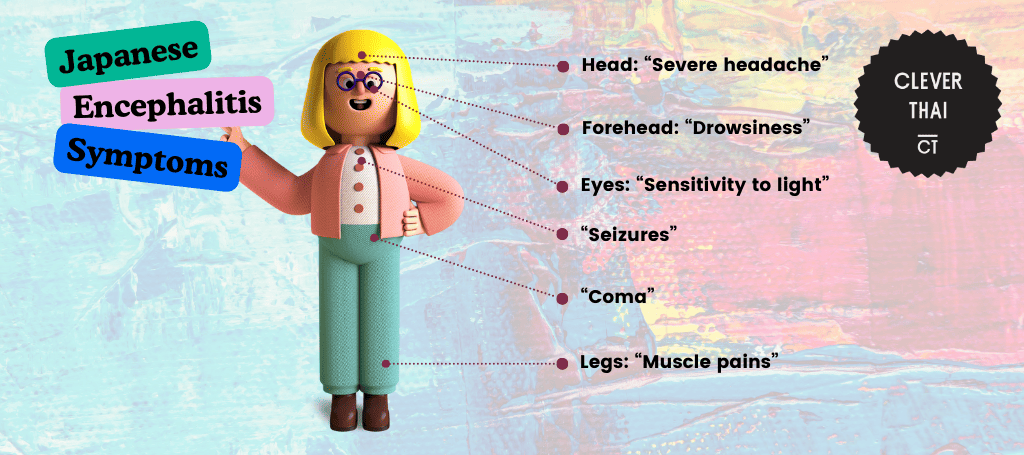
Symptoms of Japanese encephalitis are similar to those of dengue. Some of the flu-like symptoms include headaches, muscle pains, and fever. There are extreme cases where patients can get meningitis and even reach epileptic fits, drowsiness, or coma.
Most Japanese encephalitis cases occur in southern Thailand, Phitsanulok, Sukhothai, and the Chiang Mai Valley (northern Thailand). Most of these mosquitoes make rice fields their breeding ground, especially where there are pig farms.
These carriers are mostly active from May to October or during or right after Thailand’s rainy season and will commonly strike around dusk.
What to Do about Japanese Encephalitis

If you’re staying in the risky areas we mentioned above for very specific reasons (biologists, anthropologists, etc.) from 1 to 6 months, then you might need to get vaccinated for protection.
If you’re ill and your fever persists for more than three days, call your doctor. A severe headache, sensitivity to lights, having rashes that do not fade under pressure, and vomiting usually indicates an emergency.
Malaria

| Disease | Symptoms | Area | Period | Time |
| Malaria | Flu-like symptoms such as chills and fever | Dense forests near the border of Cambodia, Laos, and Myanmar | June to August and October to November | Early in the morning, at night, and late in the evening |
Malaria Symptoms
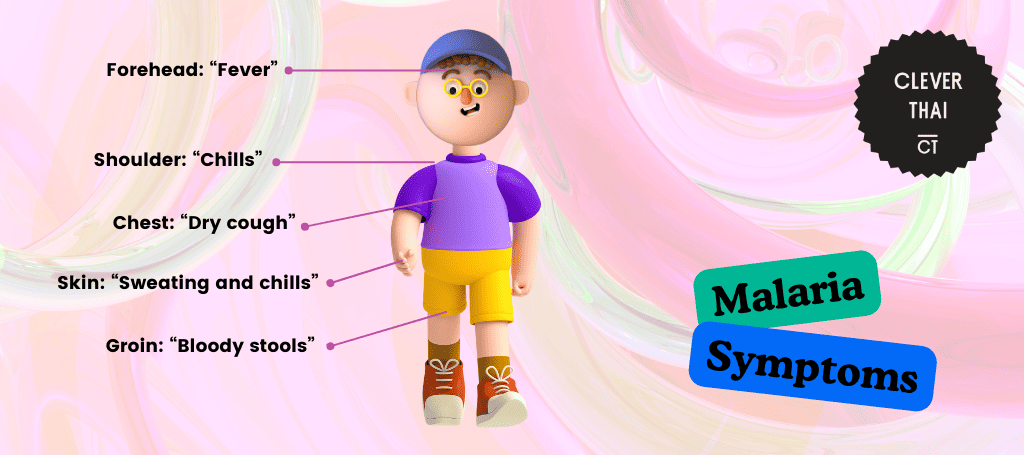
Malaria is an infectious disease carried by mosquitoes and those who get it will also exhibit flu-like symptoms. If malaria is left untreated, then serious complications may happen and can even lead to death.
Your risk of getting malaria while travelling in Thailand is rare and is estimated to be at around 1 in 50,000 tourists only.
In fact, Thailand as a country has been slowly but surely reducing incidences of Malaria from 2000 to 2014 bringing the numbers down from 625 deaths to just around 38.
Malaria can incubate in as short as one week and as long as 3 months and will usually lead to flu-like symptoms that will last for more than 24 hours.
What to Do about Malaria
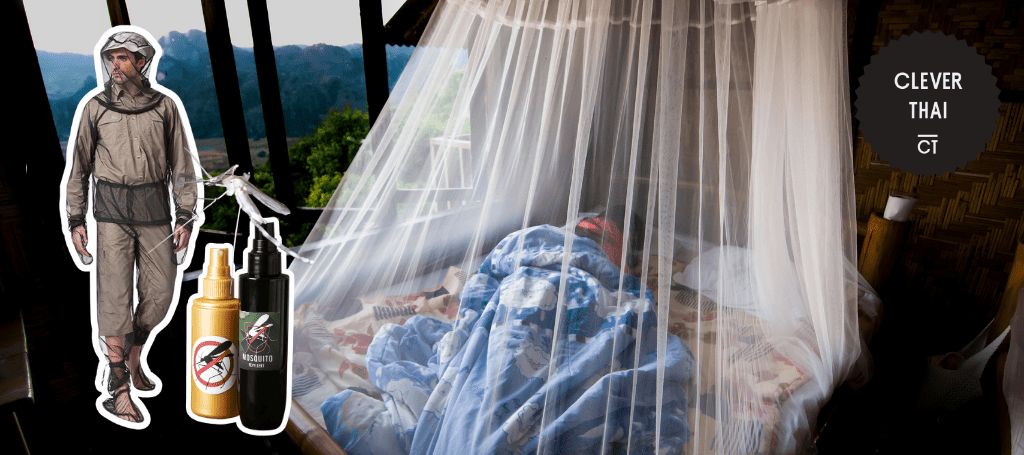
While there are no malaria cases in the urban areas of Thailand such as Pattaya, Chiang Mai, and Bangkok, it is pretty prevalent in the dense forests near the border of Cambodia, Laos, and Myanmar.
So, if you’re heading to those areas, you must have a strict regimen of using DTT mosquito repellent, covering up your entire body with appropriate clothing, and using insecticide-treated nets when sleeping.
Know that mosquitoes that cause malaria can be quite pesky as they’re active early in the morning, at night, and late in the evening. Also, cases usually peak from June to August and October to November, so this is something to consider when making your travel plans.
If you suspect a malaria infection, which usually happens 10 days after getting bitten, head straight to the nearest hospital to get treated. Just note that some types of malaria can stay dormant and only show symptoms after a year.
Zika
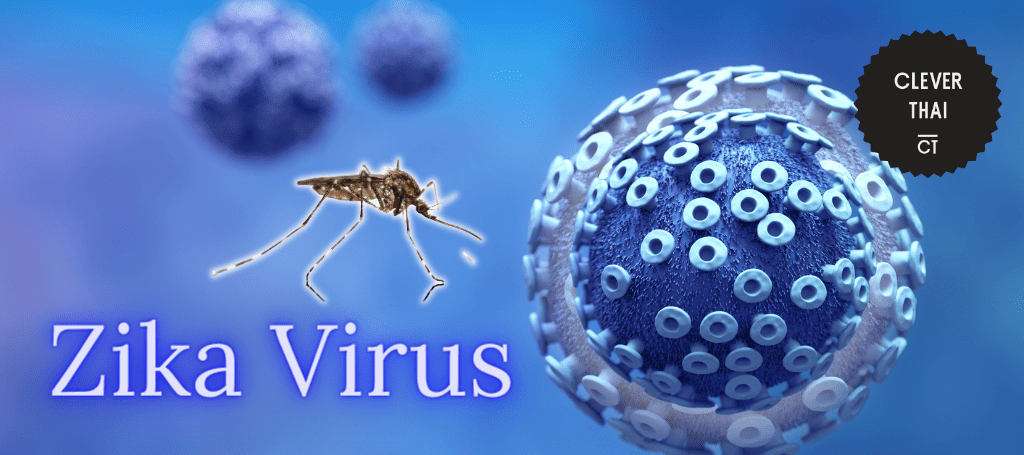
| Disease | Symptoms | Area | Period | Time |
| Zika | Rashes, joint pain, headache, and fever. Serious birth defects for foetuses | No available data | January to October | Dawn to dusk |
The Zika virus is another disease carried by mosquitoes that is particularly dangerous for pregnant women. Being infected by the virus while carrying a child to term can lead to foetuses having serious birth defects.
Transmission of the virus is also possible person-to-person and will most likely be transmitted via sexual contact.
2016 seemed like the year of this virus as 680 confirmed cases were recorded from the months of January to October.
Zika Symptoms
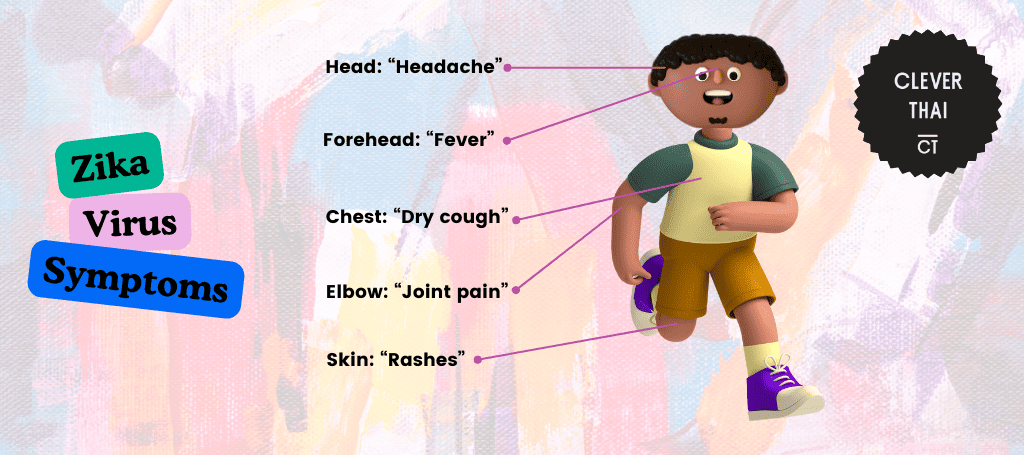
Symptoms are also fairly mild such as rashes, joint pain, headache, and fever. Most patients will recover without any major concerns within a week (unless they are pregnant, of course).
At present, Thai authorities are still unsure as to where the Zika virus is prevalent but they do have an idea of when the virus is active which is from dawn to dusk.
What to Do about Zika When in Thailand
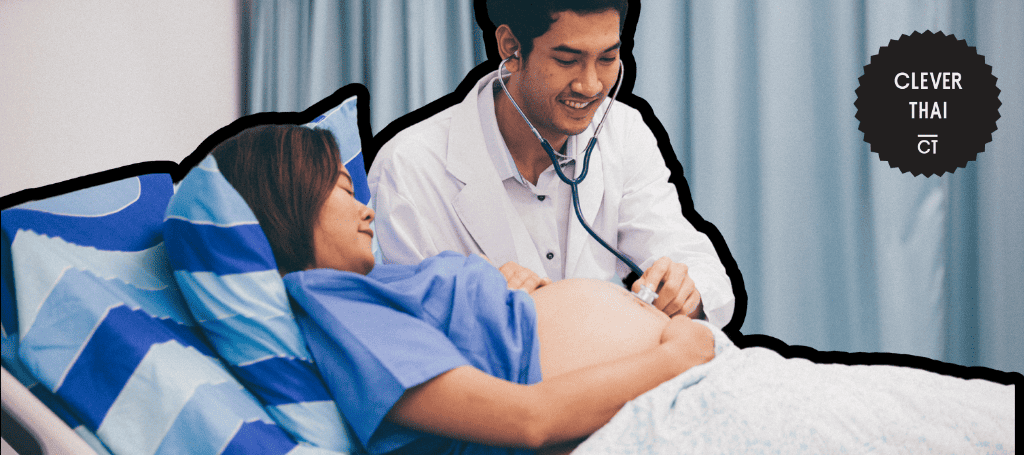
There is also no known cure for the virus and no vaccine is available for it as well. As such, the best way to protect yourself from Zika is to strictly follow mosquito-repelling methods to avoid being bitten.
As we’ve mentioned before, if you’re mildly infected by Zika, recovery is possible at home. Some people don’t even notice getting infected! Just get plenty of rest, take analgesics and antipyretics, and hydrate well.
Since zika is transmitted sexually, men coming from zika-prone countries should use condoms within the first two months of their return.
If you’re pregnant, avoid travelling to areas with Zika outbreaks. And if you suspect getting Zika while pregnant, you must notify your primary care provider as soon as possible.
How can I prevent being bitten by mosquitoes in Thailand?
There are a number of things you can do to prevent getting bitten by mosquitoes on your trip to Thailand. We listed down some of the things you can do to avoid these insects and prevent contracting the vector-borne diseases they bring:
Use repellents and anti-mosquito spray

You can bring your own mosquito repellent to Thailand or you can also just buy one from any of the many convenience stores in the country.
Aside from its proven effectiveness, these repellent and sprays are also pretty cheap when bought in Thailand. If you notice that the formula isn’t that effective, then proceed to any pharmacy and ask for something much more potent.
You should apply your anti-mosquito spray each morning before you go swimming, jogging, or just heading out. Also, make sure you apply an extra layer if you plan on hiking through the forests or if it’s already mosquito hour (sunset and sunrise).
Also, if you’re using some sunscreen, it’s best to let it settle first before applying the repellent. You can wait around half an hour and once the sunscreen has dried up, then apply your bug repellent as you normally would.
Wear long-sleeved shirts or leggings

Long-sleeved shirts and leggings can help deter mosquito bites by covering the exposed parts of your body. However, you wouldn’t want to wear dark long sleeves and leggings while travelling around Bangkok as it could get extremely hot.
As such, you can wear long-sleeved shirts and leggings with light materials and colours. Another option is for you to just bring a cardigan or a thin sweater just to cover up your limbs during mosquito hours.
Hiking through the jungle, though, is an altogether different story as you need to wear pants and long sleeves to protect yourself not just from mosquitoes but also from the elements.
Plan your trip well
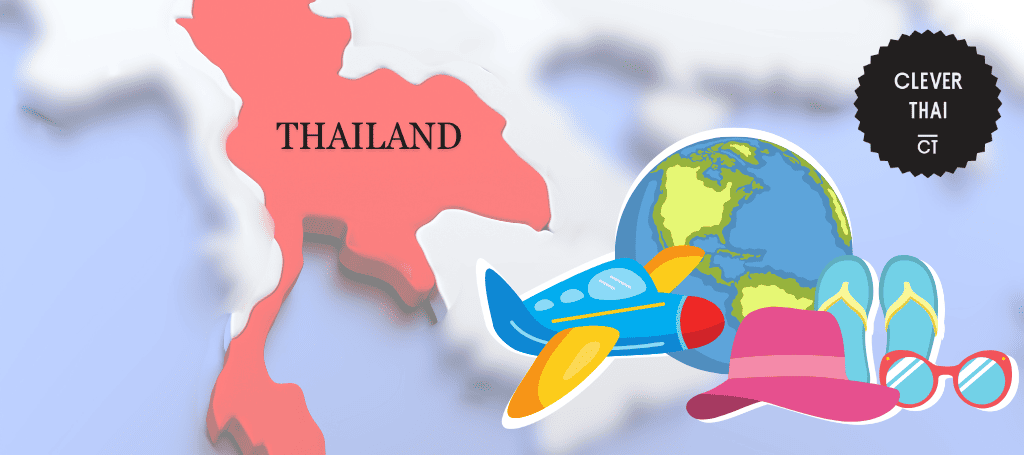
Lastly, you need to plan your trip to Thailand well. Know which months have high volumes of mosquitoes and also be aware of which areas have the most vector-borne diseases.
Once you’ve planned your trip, make sure that you wear appropriate anti-mosquito clothes for your activity. A hike through the forest will entail a different set of clothes to ward off mosquitoes and the same holds true if you’re planning some night swimming.
Keep in mind that certain mosquitoes are more active during certain times of the day so it’s important to travel around Thailand with all of this information on hand. We’ve provided some details in the table above for your easy reference!





